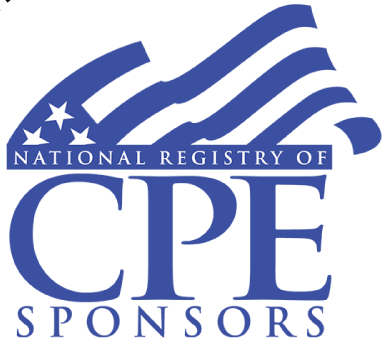Stay connected
Be the first to know about new programs, upcoming events, or other exciting opportunities happening at the University of Georgia by joining our mailing list.
About this course
What you’ll learn
Purchasing is an online, self-study training NASBA-approved (Opens in a new window) course developed by the University of Georgia. This 13.8-hour course will familiarize you with the purchasing process from determining your needs to receiving goods or services. You will learn about different methods of purchasing, proper supporting documentation, internal controls, and purchasing ethics. As you progress through each of the lessons, you will be challenged with self-test questions and interactive exercises. Online consultations with a financial professional can be scheduled on request.
Learning objectives
Lesson 1 — Introduction to Public Purchasing
- Identify the reasons for a government to have a sound purchasing system
- Recall the functions and goals of purchasing
- Define the characteristics of a quality purchasing staff
Lesson 2 — Purchasing Organization
- Identify the advantages of centralized versus decentralized purchasing systems
- Recall the importance of authority and responsibility in the purchasing function
- Identify the laws, rules, and regulations when purchasing with state and federal funds
- Recall the components of local ordinances and regulations
Lesson 3 — The Purchasing Process: Request for Supplies, Equipment, and Services
- Recall the steps of the purchasing process
- Identify the importance of writing specifications
- Define the process of issuing the requisition and purchase order
- Recall important aspects of delivery and receipt of goods
- Identify the importance of identifying capital assets as part of the purchasing process
Lesson 4 — The Purchasing Process: Competitive Sealed Bids and Proposals
- Identify the competitive sealed bidding process
- List options for selecting sources for supplies
- Recall the characteristics of bid documents
- Define the process for awarding bid
- Recall the differences between a competitive sealed bid and competitive sealed proposal, and the combination of the two (multi-step or two-stepbidding).
Lesson 5 — The Purchasing Process: Additional Purchasing Methods
- Recall when informal bidding methods are permitted
- Define how to perform a telephone quote
- Identify circumstances in which an emergency purchase should be allowed
- Recall situations in which sole source purchases should be allowed
- Identify when term contracts may be advantageous
- Recall purchasing methods employed by user departments
Lesson 6 — The Purchasing Process: Receiving, Inspection, Payment and Disposal
- Recall the receiving process including the importance of inspection
- Identify the invoice payment process
- Recall the process for disposal of a government’s capital assets
Lesson 7 — Accounts Payable and the Purchasing Process
- Recall how requisitions are used in the purchasing process
- Define the entries to the accounting ledger for purchase orders
- Recall how direct pays differ from the purchase order process
- Identify the entries to the ledger required for petty cash
Lesson 8 — Purchasing Documentation and Records
- Recall required documentation for the purchasing process
- Identify levels of authority in the purchasing process
- Recall purchasing documents required for retention
- Identify time requirements for records retention
Lesson 9 — Other Purchasing Issues
- Identify benefits of cooperative purchasing
- Recall characteristics of various preference programs
- Define requirements for a successful warehouse program
Lesson 10 — Purchasing Ethics
- Recall the purchasing ethics related to vendor relationships
- Identify employee ethics relating to purchasing goods under contract prices
- Recall guidelines for dealing with the media
- Identify examples of purchasing crime
Lesson 11 — Internal Controls
- Identify the two major internal control models for governmental entities
- Define internal controls and internal control system
- Recall the importance of internal controls as it relates to the purchasing process
Who should attend?
- Local government finance professionals and paraprofessionals who want to enhance their career skills and professional development opportunities. (Georgia residents can use course credits for the Georgia Local Finance Officer Certification Program.)
- Accounting professionals who want to earn continuing professional education required for all CPAs.
- Governmental professionals with previous private sector experience who want to gain governmental purchasing knowledge.
- Many state licensing boards require that CPAs maintain and improve their skills through continuing professional education (CPE) courses. This course is approved by the National Association of State Boards of Accountancy (NASBA) (Opens in a new window).
Continuing Education Information
The University of Georgia will award 1.38 Continuing Education Units (CEUs) or 11.5 CPEs upon successful completion of this course. A University of Georgia CEU (Opens in a new window) transcript is available at any time upon written request.
NASBA Information
Field of Study: Finance
Delivery Method: QAS Self Study
Advance Preparation: None
Program Level: Basic
Prerequisites: None
Requirements & policies
Schedule
Start anytime and complete the course’s required online quizzes and exercises within 60 days of receiving the “Welcome” email with course URL, username and password information.
Fees & funding information
$369 (US Funds) — Residents of Georgia
$409 (US Funds) — Non-residents of Georgia
$50 (US Funds) — One-Month Extension (Only one extension is granted per participant.)
Prepayment is required to be registered. Prices listed are per person.
Cancellation or refund
We will issue a refund, minus a $50 processing fee, if you have not accessed the online course at all. All cancellation and refund requests must be sent via email to gc-student@uga.edu no later than seven (7) days after your course access information is issued.
Certification
This course meets a Level I core course requirement in the Local Finance Officer Certification Program for local government personnel in the State of Georgia.
Prerequisites
There are no prerequisites for enrolling in the course.
Textbooks
Textbooks are not required to complete this course. Everything you need is built into the online course.
Organizations
Supporting associations
This course is approved by the National Association of State Boards of Accountancy

Prices, course details, dates, and times are subject to change.
Contact us + FAQs
FAQs
View the most frequent questions asked by our learners
Financial and Military Assistance
Find out which programs are eligible for assistance
Accommodations
View our accommodation policy






